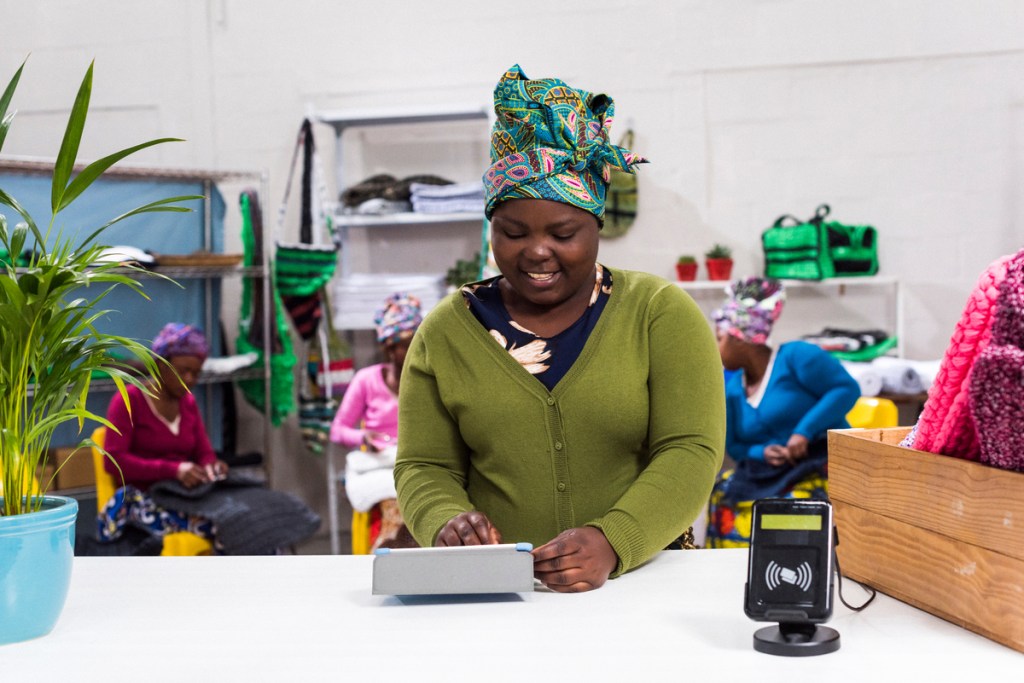Consumer behavior in Kenya
In Kenya, the FMCG Market grew 3.3% in value in the past 12 months compared to the same period last year, largely driven by Food categories. Units, however, declined by 10.6%, indicating that the value growth was driven by price increases.
The consumer basket is largely driven by essentials with the top ten categories—estimated at a value of 1.4B USD—were comprised of flour, soft drinks, cooking oil, Liquid Milk-UHT, Laundry Bar, Laundry Detergent, Yogurt, Diapers, Liquid Fresh Milk and Toilet Soap.
Traditional Trade still dominates the retail landscape with a contribution of 58.4%, valued at 1.2B USD, declining by 2.2% this year in comparison to last year. Modern Trade contributed 41.6% (valued at 869M USD), with a growth of 12% in comparison to a year ago.
Consumer behavior in Nigeria
The FMCG market slowed down in dollar sales, growing 15.1% in Q2′ 23 compared to 16.1% in the previous period. Consumption (volume sales) further dropped by 4.9%.
The fastest-growing super categories are food, home care, personal care, and alcohol. The channels that drove growth are convenience, traditional trade, on-premises, and modern trade.
Traditional trade dominates the retail market with a contribution of 98% (estimated at 4.5B USD) and growing in value in the same period.
East & West African consumer saving strategies
According to two NIQ studies conducted in Kenya and Nigeria in the first half of the year, E W Africa consumers are approaching the new year with a recessionary mindset. 48% of Kenyan consumers said that they are financially worse off this year, while notably, a significant 86% of Nigerian consumers are actively saving for the future. Similarly, and in response to inflationary pressures, many individuals in these two markets are employing coping strategies to navigate the increasing costs of living.
High cost of living remains the key concern for Kenyan consumers, with 44% of consumers stating this as the major cause of their worsening financial situation with job security following closely (35%).
Similarly, Nigerian consumers have established saving strategies to manage their expenses, and they are focused on prioritizing their food spend for the essentials:
• 68% are weighing the attributes that matter most. Brand loyalty seems uncertain for many consumers.
• 66% of consumers have embraced a shift in their prioritized spending to focus on food products.
• 65% of consumers are buying in bulk or larger sizes.
“Consumer reactions to inflation are solely pegged on the value of products—that is directly influencing different shopping habits and choice of brands,” comments Faith Wanderi, NIQ Managing Director for East & West Africa. “The retail space continues to evolve but the good news is that both the modern and traditional markets continue to grow.”
Brand Loyalty is uncertain
Consumers are disregarding factors like packaging and brand preference, focusing solely on affordability in their purchasing decisions. The trend indicates a preference for stores offering promotions, with consumers utilizing loyalty cards to save money. Bulk shopping has become a consistent strategy for consumers aiming to counteract rising product prices.
Brand-switching behavior has significantly impacted various categories, with notable percentages: cooking oil (Kenya 69%), maize meal (Kenya 66%), cleaning and laundry products (Kenya 35%, Nigeria 53%), skincare (Nigeria 51%), and milk and toothpaste categories (Nigeria 44%). The prevalent pattern suggests that consumers are gravitating towards purchasing brands currently on promotion.
Consumers are prioritizing discount stores and private label
In Kenya, consumers are actively seeking out promotions (53%) and demonstrating a discerning approach to choosing stores, showing a preference for loyalty card usage (20%). Moreover, 37% of consumers are embracing bulk shopping strategies as a means of managing expenses.
The trend of wholesale shopping is on the rise, as consumers find the pricing at these establishments more attractive and the overall experience more convenient. This shift has led to a decrease in visits to supermarkets, kiosks, and grocery shops.
In Nigeria, 65% of consumers are opting for bulk purchases or larger sizes, turning to wholesalers to help cut down on expenses. The preference for online wholesalers is growing, driven by the perception of them being more cost-effective and convenient for locating promotions and discounts. This shift is compelling brands to adopt an omnichannel approach, catering to consumers whether they are shopping online or at brick-and-mortar stores.
The increasing inclination toward online wholesalers is encouraging brands to embrace an omnichannel strategy, ensuring they cater to consumers shopping both online and in physical stores. Shopping online provides opportunities for better deals, with products being either more discounted or moderately priced.
Traditional trade remains highly significant in both markets. In Nigeria, 57% of consumers are identifying additional reasons to opt for private label brands. Store brands are experiencing swift turnover on the shelves, driven by consumers who appreciate the value for their money, obtaining products of the same weight for a lower cost.
About the research
The Kenyan consumer study was conducted nationwide in Kenya (April-May 2023). 1000 respondents were selected through a random sample. Additional data from NielsenIQ Retail Audit Panel H1’ 2023.
The Nigerian consumer study was conducted nationwide in June 2023 in 9 cities through a random sample.




